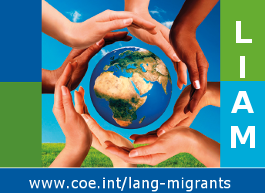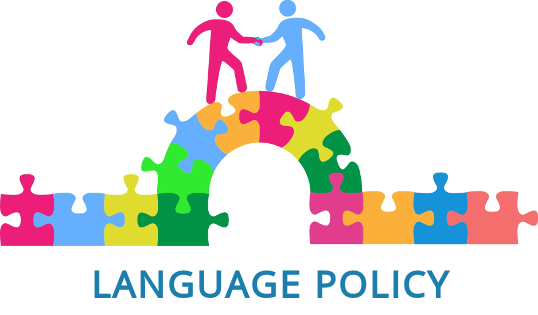Linguistic Integration of Adult Migrants (LIAM)

The LIAM project offers support to policy makers and practitioners who are working to facilitate migrants’ integration into civil society.
Political context
Migrants and their integration into the host community are a subject of political debate and policy initiatives in a growing number of Council of Europe member states. Issues related to the acquisition of competence in the language(s) of the host country have acquired particular importance.
The Council of Europe has been concerned with migrant language learning since 1968, when the Committee of Ministers issued a Resolution (Res(68)18) on the teaching of languages to migrant workers. This was followed by an exploratory short-term ‘modern languages’ project. An initiative on a larger scale, the Linguistic Integration of Adult Migrants (LIAM) project, was launched in 2006.
Practical support for member states
Drawing on the tools, instruments and other resources developed by the Council of Europe over several decades in the field of learning/teaching languages, the LIAM project has sought to facilitate the integration of migrants in civil society and to promote social cohesion, in keeping with the Council of Europe’s core values. Accordingly, supports have been developed for policy makers, providers of language courses, and those in charge of testing migrants’ language competences.
One of the reasons for undertaking this project was the use that was being made of the Common European Framework of Reference for Languages (CEFR), a Council of Europe instrument used in most education systems. Three surveys of member states carried out by the Council of Europe have shown that the CEFR has been used with increasing frequency to define the levels of proficiency that adult migrants are required to achieve in order to secure entry, residence and citizenship. The CEFR was not intended for this purpose, however, and its inappropriate use can have serious consequences that may include the infringement of migrants’ human rights.
Results
The resources developed by the LIAM project focus on language policy and its development, language learning programmes for adult migrants, and the assessment of learning outcomes. They are intended to help member states to meet the specific needs of adult migrants. Bearing in mind that integration is a two-way process, they are also designed to serve the Council of Europe’s wider goals: social cohesion and full participation in the democratic process.
Member states have contributed to the project, sharing their concerns and expressing their needs
- through three surveys of policy and practice (2007, 2009 and 2013)
- by taking part in three intergovernmental conferences in Strasbourg (2008, 2010 and 2014)
- by making use of the results of a Symposium (2016) that provide them with a collection of papers and case studies discussing a wide variety of issues designed to stimulate reflection.
The LIAM project’s dedicated website is designed to respond to the potential needs of diverse categories of users (see Overview of section contents). It offers various kinds of resources, including
- a set of Principles addressing the various issues and considerations to be taken into account when designing policies to facilitate the linguistic integration of adult migrants
- a list of Key terms linked to a large number of background papers
- Instruments and Ressources, for example a self-evaluation questionnaire for language course providers and a European Language Portfolio designed for adult migrants.
LIAM website: www.coe.int/lang-migrants



